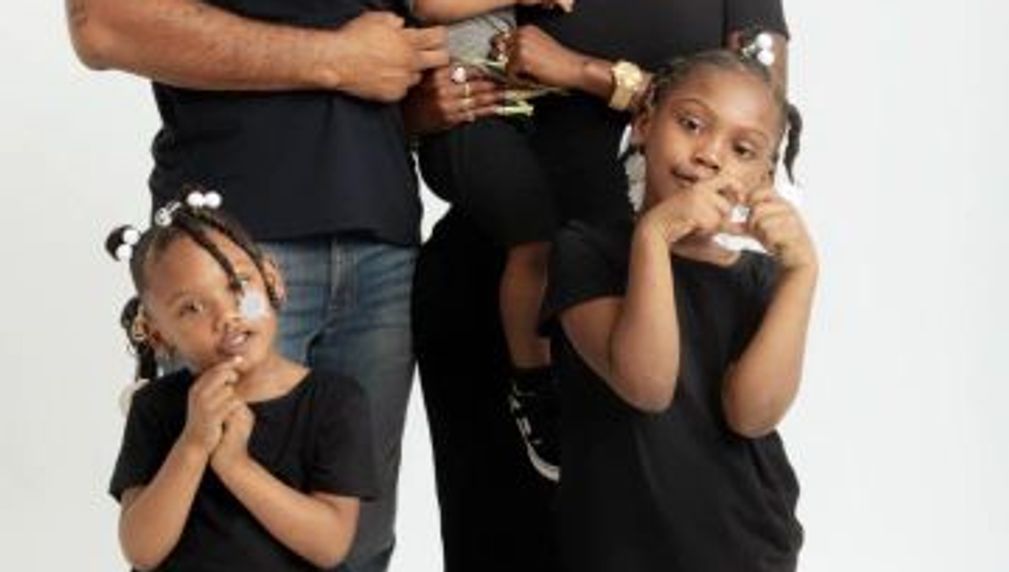YOUR HANDS HELPING GRANDS
For every one child in the foster care system with a relative providing the care, there are 14 children being raised by relatives outside that system who need help. That's the focus of "grands"! Kinship caregiving, for children whose parents are unable to care for their children, comes with unique challenges and a need for access to the right resources. The Biddy Mason Charitable Foundation (BMCF) offers navigational support and resources to Grandfamilies and Kinship Caregivers as they hold the hands of their precious grandchildren and youth.

What is the primary issue area that your application will impact?
Support for Foster and Systems-Impacted Youth
In which areas of Los Angeles will you be directly working?
County of Los Angeles
In what stage of innovation is this project, program, or initiative?
Expand existing project, program, or initiative
What is your understanding of the issue that you are seeking to address?
"Kinship families are part of communities across California. In 2021, an estimated 1.15 million California children under the age of 18 lived in homes where a relative was head of household, and for every 1 child being raised by kin in formal foster care, 14 children were being raised by kin outside of foster care (informal kinship caregiving). Grandfamilies and kinship families offer a tremendous opportunity for vulnerable children/youth to grow up in safety and maintain family connections when their parents are unable or unwilling to care for them. Kinship caregivers open their hearts and home to a relative's child." (UW KinshipCareCA.org) Unlike parents, these caregivers often do not have inherent legal rights with respect to the children they raise, and they take informal responsibility for children suddenly with little time to plan for needs. The issue addressed is that kinship caregiving comes with unique challenges and a need for access to the right resources and support.
Describe the project, program, or initiative this grant will support to address the issue.
We host a monthly meeting of the BMCF Kincare Academy for Informal Kinship Caregiving. This would include the "14 children" referenced above who are outside of the foster system. The group is currently composed primarily of 20 grandmothers who care for approximately 40 grandchildren. The grandmothers live on fixed incomes, and they are not compensated at the same rate as a foster parent. They do not generally have the support of a social worker and often are navigating the system on their own. There is a tremendous amount of frustration within the group along with distrust of the Los Angeles County Department of Children and Family Services (DCFS). Our monthly meetings feature guest speakers to help educate them on what is available. Through these meetings, we have built trust and that is what is unique about our solution. Our Kinship Academy does not replicate other services already available through groups like Alliance for Children's Rights and DCFS but rather we listen to client frustrations and work to eliminate stumbling blocks. Additionally, we provide tangible resources as funds permit for special items. Technology education is a big area of need. Our clients have phones but they don't know all the uses of the phone and the computer is alien and intimidating. We have a few desktops, but with part of this grant we would add laptops to use for training purposes. Building trust is the best way to help these Kinship Caregivers navigate a complex community.
Describe how Los Angeles County will be different if your work is successful.
Our program will enhance the Informal Kinship Caregivers in LAC by providing much needed connections to resources, technology education and tangible support to these families who would otherwise continue to struggle. Los Angeles County will have kinship caregivers who will grow in confidence using technology that will benefit them and the children left in their care throughout all sectors of their lives. Informal kinship caregiving as defined in question 6 above says that LAC's DCFS statistics of over 8,000 children formally being raised in kinship families means that 14 times this number, or 112,000 children, are being raised by kin outside of foster care informally. Through our Kinship Academy: short-term - we plan to support 40 households including 100 children in one year; long-term - we hope to scale this project by offering classes more frequently, setting a fixed syllabus, and engaging program 'graduates' to mentor their peers.
What evidence do you have that this project, program, or initiative is or will be successful, and how will you define and measure success?
Our Kinship Academy formally began in Oct. 2022 with a small group of 5 caregiver grandmothers. In 9 short months, our group has quadrupled with the clients themselves suggesting topics of interest and helping to coordinate speakers. We are in the process of developing an evaluation form that will utilize pieces of the popular Arizona Self-Sufficiency Matrix. We know that the program is working because of the growth in the number of attendees. Annually, we grant scholarships to 75 youth for post high-school education. Many of these awardees grew up in Kinship families and our plan is to offer volunteer opportunities to past recipients to engage with our Kinship Academy participants as mentors thus demonstrating to our caregivers the importance of the job they are doing. According to LA DCFS, frequent support requests include: emergency financial assistance, navigation advocacy, referrals to supports for ALL children in their care, and referrals to supports for the caregiver/spouse.
Approximately how many people will be impacted by this project, program, or initiative?
Direct Impact: 150
Indirect Impact: 300